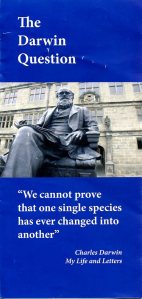Parliamentary debates are usually taken as the model for speech debates, but legislatures debate policies, not, primarily, factual issues. The answer to a debate in a legislature is ‘yes, we shall pass this legislation [or amendment]’ or ‘no, we shall not’.
The question, ‘does god exist?’, lends itself to no such yes/no answer. The two sides of such a debate are not mirror-images of each other. Theists are mostly believers in a body of scripture that conveys some supposed revelation, and given that you believe this revelation you are almost certain to answer ‘yes’.
The opposite is not true. Suppose you had never heard of any god, and someone said ‘there is a god’. A reasonable response would be, ‘I am sceptical, show me evidence’.
In actual fact, we live in a country where one religion was previously dominant and enforced over the centuries through compulsion. In earlier times, this was backed up by torture and death. More recently, relatively gentle sanctions were used, such as making church membership obligatory for marriage or university attendance. (I cannot go into a mediaeval church now without being reminded of the brutal history of the Church, which reflects the unremitting cruelty of the Pentateuch, but I am digressing.)
For historical reasons, then, we have come to our present, relatively secular, situation through active scepticism and resistance. Nevertheless, this does not mean that non-theists necessarily answer ‘no’ to the question ‘does god exist?’. In fact I have come across people with a whole range of positions from ‘it is possible that some kind of supreme being exists’ to ‘it’s so improbable that it is not worth wasting time thinking about it’.
What kind of god are we debating? The people who suggested this debate believe, presumably, in one of the variations on the christian god. But people have believed in thousands of different kinds of god at different times and in different places. As Richard Dawkins likes to say, we are all atheists, it’s just that he believes in one god fewer than a christian or muslim does.
On the one hand, some people argue for a kind of basic foundation of the universe or of life, which may or not be intelligent. Often this will be presented in some form that people feel requires an agnostic position. When presented with this, I will ask for some consequences in the observable world that could be used to test for the existence of such a ‘god’. If those are not forthcoming, then I shall simply consider the existence this ‘god’ not worth the effort of thinking about.
On the other hand, most religious people believe in some kind of god who makes personal demands of behaviour, reverence and belief in certain claimed facts. These religions all assert the truth of what they claim about their own god over the claims of other religions. For example, both muslims and christians believe in Jesus. But to deny that Jesus is the son of God is blasphemy to christians. To assert that Jesus is the son of God is blasphemy to muslims. As these religions contradict each other, at most only one can be true.
Therefore, if you are going to debate whether god exists, we need to know in advance exactly what claims are being made about this god.
As the organisations promoting this debate are (I suspect, a very specific sort of) christian, and there is no reason to suppose they are going to assert the validity of any rival religion, I’ll concentrate on christianity.
Although I may be agnostic about more generic kinds of god, I think christianity is false. (This, I hasten to add because it will likely be raised, does not mean that I think that what is often referred to as ‘christian morality’ is all bad.)
My reasons for rejecting christianity are many: the contradictions between christian doctrine and history and science, the internal contradictions, the very flawed moral compass, and the dubious and political ways in which the scriptures were assembled that belie the claim that they are the ‘Word of God’.
That’s a start. Would PurpleFish members like to comment?




